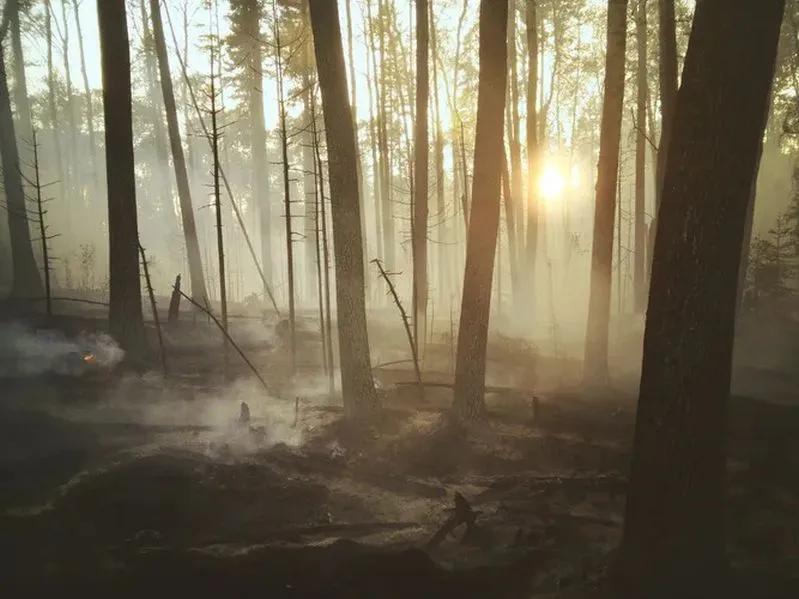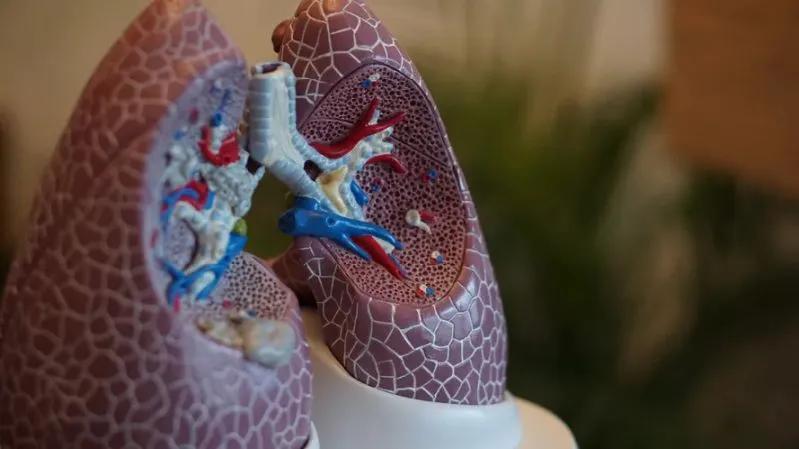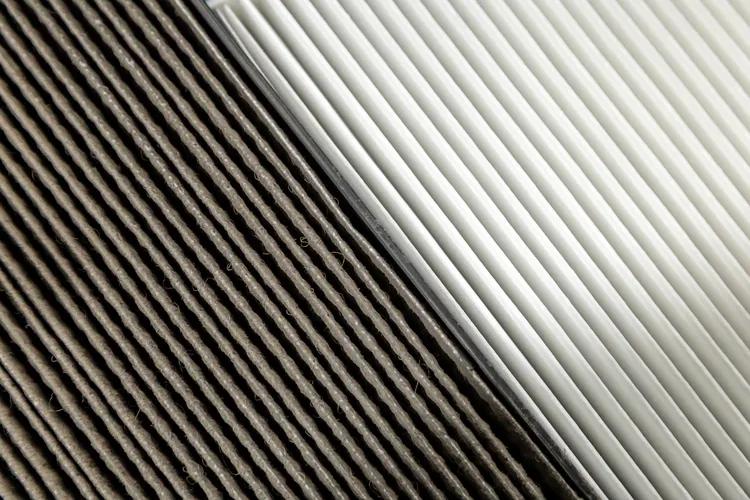Fast, Free Shipping
Every Size
Made in the USA
Shop by

Heatwaves, droughts, and wildfires have taken center stage these past few summers, making headlines nationwide. Residents in high-fire-risk areas aren’t the only ones worried about fire season anymore. Images of eerie red skies across city landscapes continue to trend online, but for many states, this unusual weather phenomenon is now to be expected every year.
Fire season primarily affects dry brush regions in the western states. However, wildfires are becoming more frequent and widespread as summers get drier and longer. Winds can carry ash and smoke hundreds of miles from the fire site, making anyone a potential victim. Heavy, smoky hazes of concentrated ash and other pollutants blanket entire cities and make their way into homes. Residents have no choice but to evacuate or wait out the smoke and fire.

Those in high-smoke areas, where the fire itself is not a risk, will often choose to stay rather than evacuate. Even though smoke is nowhere near as destructive as fire is, prolonged exposure can have serious, long-term health effects. As fire season becomes increasingly catastrophic, knowledge and preparation are key in managing wildfire smoke at home.
Fire season varies depending on the state and environment. Generally, wildfires are more common in the central and western U.S., in areas with dry, hot climates and significant vegetation. The timing and duration of fire season can also depend on factors like rainfall and the types of plants in the region.

On the west coast, fire season typically lasts from late summer through early fall, from July to October. California is particularly prone to wildfires because of the dry climate, long summers, and abundant dry brush, which fuels smoke and fires.
In the southwest U.S., fire season lasts from late spring through early summer, from May to July. Arizona, New Mexico, and other southwestern states are dry and windy, creating optimal conditions for spreading smoke and fire.
In the Rocky Mountain region, fire season usually starts in the late spring and can extend into late summer, from May to August. The dry conditions, strong winds, and lightning storms in Colorado, Idaho, and Montana make wildfires common.
The exact timing and severity of fire season in each region of the U.S. can vary from year to year. It's always a good idea to stay informed about local conditions in case evacuations are mandated. Always follow the guidance of local authorities to ensure you and your family stay safe during fire season.
Wildfires are the most frequent in California, accounting for “roughly 31% of all acres burned due to wildland fires in the U.S.” Fire season in California can vary depending on weather patterns, annual rainfall, and other factors, but most fires occur between July through October. California is a large state with diverse climates and ecosystems, so fire season timing can vary across different regions. The southern part of the state, including areas like Los Angeles and San Diego, may experience fire season slightly earlier, starting in late spring or early summer, due to the prevalent arid conditions.
Inhaling wildfire smoke can have a wide range of health effects, especially for individuals exposed for prolonged periods or with preexisting conditions. Smoke inhalation can have both short-term and long-term effects, but symptoms and consequences can be minimized by managing exposure.
Ash, dust, and other pollutants from wildfire smoke can cause irritation to the eyes, nose, and throat, leading to symptoms like coughing, wheezing, shortness of breath, and chest tightness. For those who have existing respiratory conditions like asthma or COPD, breathing in wildfire smoke can exacerbate symptoms.

Prolonged exposure to smoke can have long and short-term effects on overall health, including fatigue, headache, dizziness, reduced lung function, and chronic illnesses. Vulnerable populations such as children, the elderly, and pregnant women may be more susceptible to these effects. Additionally, wildfire smoke contains pollutants that can enter the bloodstream and impact cardiovascular health. This can increase the risk of heart attacks, strokes, and other cardiovascular problems, especially in individuals with pre-existing heart conditions.
It's important to take precautions to minimize exposure to wildfire smoke and keep it out of your home. Staying inside, closing windows and doors, using air filters, and following your local health advisories can significantly minimize smoke inhalation. It’s also important to stay up to date with any information released by your local authorities in case evacuations are necessary.
Even if you live miles from an active wildfire, smoke and ash will inevitably find their way into your home. The smell of smoke and fire is overwhelming and unpleasant and also a health hazard. To best protect your family from smoke inhalation, homeowners must maintain high indoor air quality.
Close Windows and Doors
Keep all windows, doors, and other openings closed to prevent smoke from entering your home. Use weatherstripping or draft guards to seal any gaps.
Change Your Air Filter
A fresh air filter can be more efficient at filtering out smoke particles, especially if your filter is over 3 months old. Air filters are one of the few tools that can directly remove smoke from the air, so make sure yours isn’t clogged.
Set Up a Clean Room
If you must leave your home for any reason, try to designate a room or an area you can store any clothes, shoes, and other items that have been exposed to smoke. Isolating these items reduces the chance of tracking in ash, dust, and other pollutants.
Reduce Other Sources of Indoor Pollution
During periods of heavy smoke, try to minimize activities that can add to indoor air pollution. These include burning candles, smoking tobacco, using gas stoves or fireplaces, and vacuuming, which can stir up particles in the air.
Maintain Good Ventilation
While it's important to keep windows closed during the peak of wildfire smoke, once the air quality improves, you can open windows and use fans to ventilate your home.
Clean Surfaces Regularly
Use a damp cloth or mop to wipe down surfaces and remove settled smoke particles to prevent them from recirculating into the air.
Stay Hydrated
Drink plenty of water to help flush out any toxins or irritants you inhaled.
Follow Local Health Advisories
Stay updated on air quality reports and health advisories provided by local authorities. They’ll let you know when it is safe to open windows and go outdoors.
These tips can reduce smoke inhalation but not prevent it entirely. Those with preexisting health conditions should be extra cautious when exposed to wildfire smoke. If you or anyone in your household experiences severe symptoms or discomfort due to smoke exposure, it is recommended to seek help from a healthcare professional immediately.
Air filters can dramatically reduce wildfire smoke inhalation by directly trapping smoke particles from the indoor air, but only if the correct filter is used. Not all filters are made to filter out smoke, and using the wrong size filter can break your HVAC system.
Filterbuy’s MERV 13 air filters are the most effective for removing wildfire smoke. MERV 13 filters can capture fine wildfire smoke particles without restricting airflow.

We recommend our Activated Carbon Odor Eliminator filter if you’re more concerned about the smoke smell than smoke inhalation. These filters use a highly porous charcoal coating to trap odor-producing particles more efficiently.
Each HVAC system is built differently, so choosing the right filter can be tricky. The correct air filter can drastically improve indoor air quality and reduce smoke inhalation during fire season. To help you find the perfect filter fit, take our MERV Match Quiz.